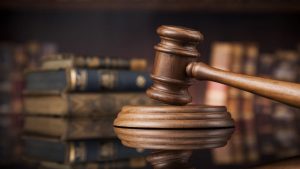 Senator Peter Nwaoboshi received respite on Friday as the Supreme Court quashed his seven-year prison sentence and invalidated the money laundering charge brought against him by the Economic and Financial Crimes Commission (EFCC). The apex court ordered his immediate release from prison custody, bringing an end to a protracted legal battle.
Senator Peter Nwaoboshi received respite on Friday as the Supreme Court quashed his seven-year prison sentence and invalidated the money laundering charge brought against him by the Economic and Financial Crimes Commission (EFCC). The apex court ordered his immediate release from prison custody, bringing an end to a protracted legal battle.
The Court of Appeal in Lagos had previously sentenced Senator Nwaoboshi to prison on July 1, 2022, after finding him guilty on a two-count charge filed by the EFCC. The appellate court had also ordered the winding up of his companies, Golden Touch Construction Project Ltd and Suiming Electrical Ltd, in accordance with Section 22 of the Money Laundering Prohibition Act 2021.
However, in a split decision of four-to-one, the Supreme Court nullified the judgment of the appellate court. The court upheld the original verdict of the Federal High Court in Lagos State, which had discharged and acquitted the former lawmaker of the charges against him.
In delivering the lead judgment, Justice Emmanuel Agim of the Supreme Court overturned the appellate court’s decision against Nwaoboshi’s companies as well. The court ruled that the appellants were unjustly and maliciously prosecuted by the anti-graft agency for offenses that were not recognized by the law. It held that the EFCC had subjected the ex-lawmaker and his companies to unnecessary criminal trial in relation to a civil transaction.
The EFCC had alleged that Nwaoboshi and his companies illegally acquired a property named Guinea House on Marine Road in Apapa, Lagos, for N805 million, which purportedly belonged to the Delta State government. The prosecution argued that part of the funds used for the property was transferred by Suiming Electrical Ltd on behalf of Nwaoboshi and Golden Touch Construction Project Ltd. The EFCC claimed that the funds were proceeds of crime.
Expressing dissatisfaction with his conviction and prison sentence, Nwaoboshi took the case before the Supreme Court, where he obtained a favorable judgment on Friday. The ruling marks a turning point in his legal battle, vindicating him against the charges brought by the EFCC.

NiMet Forecasts Thunderstorms, Sunshine Across Nigeria Through Midweek
No New Revelations In U.S. Records On Tinubu — Presidency
IGP Deploys Tactical Assets To Plateau After Deadly Attacks
Rivers State Sole Administrator Ibas Appoints LGA Heads